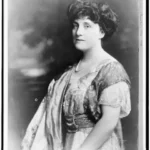 | |
The Little Bound-Boy | |
| Author | Mary Roberts Rinehart |
|---|---|
| Published |
1912
|
| Language | English |
| Nationality | American |
| Genre | Detective Fiction, Mystery |
1912 Short Story
The Little Bound-Boy
The Little Bound-Boy is an English Detective Fiction, Mystery short story by American writer Mary Roberts Rinehart. It was first published in 1912.
The Little Bound-Boy
by Mary Roberts Rinehart
In a miserable old house, in Commerce street, north of Pratt street Baltimore,–there are fine stores there now–lived a shoemaker, whose wife took a particular fancy to me as a doctor, (I never felt much flattered by the preference,) and would send for me whenever she was sick. I could do no less than attend her ladyship. For a time I tried, by pretty heavy bills, to get rid of the honour; but it wouldn’t do. Old Maxwell, the husband, grumbled terribly, but managed to keep out of my debt. He was the reputed master of his house; but I saw enough to satisfy me that if he were master, his wife was mistress of the master.
Maxwell had three or four apprentices, out of whom he managed to get a good deal of work at a small cost. Among these was a little fellow, whose peculiarly delicate appearance often attracted my attention. He seemed out of place among the stout, vulgar-looking boys, who stitched and hammered away from morning until night in their master’s dirty shop.
“Where did you get that child?” I asked of the shoemaker one day.
“Whom do you mean? Bill?”
“Yes, the little fellow you call Bill.”
“I took him out of pure charity. His mother died about a year and a half ago, and if I hadn’t taken him in, he would have gone to the poor house as like as not.”
“Who was his mother?”
“She was a poor woman, who sewed for the slopshops for a living–but their pay won’t keep soul and body together.”
“And so she died?”
“Yes, she died, and I took her child out of pure charity, as I have said.”
“Is he bound to you?”
“Oh yes. I never take a boy without having him bound.”
“What was his mother’s name?”
“I believe they called her Mrs. Miller.”
“Did you ever meet with her?”
“No: but my wife knew her very well. She was a strange kind of woman–feeling something above her condition, I should think. She was always low-spirited, my wife says, but never complained about any thing. Bill was her only child, and he used to go for her work, and carry it home when it was finished. She sent him out, too, to buy every thing. I don’t believe she would have stirred beyond her own door if she had starved to death.”
“Why not?”
“Pride, I reckon.”
“Pride? Why should she be proud?”
“Dear knows! Maybe she once belonged to the bettermost class of people, and was afraid of meeting some of them in the street.”
This brief conversation awoke an interest in my mind for the lad. As I left the shop, I met him at the door with a large bucket of water in his hand–too heavy for his strength. I looked at him more narrowly than I had ever done before. There was a feminine delicacy about every feature of his face, unusual in boys who ordinarily belong to the station he was filling. His eyes, too, had a softer expression, and his brow was broader and fairer. The intentness with which I looked at him, caused him to look at me as intently. What thoughts were awakened in his mind I could not tell. I put my hand upon his head, involuntarily; but did not speak to him; and then passed on. I could not help turning to take another glance at the boy. He had turned also. I saw that there were tears in his eyes.
“Poor fellow!” I murmured, “he is out of his place.” I did, not go back to speak to him, as I wished afterward that I had done, but kept on my way.
Not having occasion to visit the shoemaker’s wife again for some months, this boy did not, during the time, fall under my notice. It was midwinter when I next saw him.
I was preparing to go out one stormy morning in February, when a lad came into my office. He was drenched to the skin by the rain, that was driving fiercely along under the pressure of a strong northeaster, and shivering with cold. His teeth chattered so that it was some time before he could make known his errand. I noticed that he was clad in a much worn suit of common corduroy, the cracks in which, here and there, showed the red skin beneath, and proved clearly enough that this was all that protected him from the bitter cold. One of his shoes gaped widely at the toe; and the other was run down at the heel so badly, that part of his foot and old ragged stocking touched the floor. A common sealskin cap, with the front part nearly torn off, was in his hand. He had removed this from his head on entering, and stood, with his eyes now resting on mine, and now dropping beneath my gaze, waiting for me to ask his errand. I did not recognise him.
“Well, my little man,” I said, “is any one sick?”
“Please sir, Mr. Maxwell wants you to come down and see Johnny.”
“Mr. Maxwell! Do you live with Mr. Maxwell?”
“Yes, sir.”
I now recognized the lad. He was a good deal changed since I last saw him, and changed for the worse.
“What is the matter with Johnny?” I asked.
“I believe he’s got the croup.”
“Indeed! Is he very sick?”
“Yes, sir. He can’t hardly breathe at all, and goes all the time just so–” Imitating the wheezing sound attendant upon constricted respiration.
“Very well, my boy, I will be there in a little while, But, bless me! you will get the croup as well as Johnny, if you go out in such weather as this and have on no warmer clothing than covers you now. Come up to the stove and warm yourself–you are shivering all over. Why did not you bring an umbrella?”
“Mr. Maxwell never lets me take the umbreller,” said the boy innocently.
“He doesn’t? But he sends you out in the rain?”
“Oh yes–always. Sometimes I am wet all day.”
“Doesn’t it make you sick?”
“I feel bad, and ache all over sometimes after I have been wet; and sometimes my face swells up and pains me so I can’t sleep.”
“Do not your feet get very cold? Have you no better shoes than these?”
“I’ve got a better pair of shoes: but they hurt my feet so I can’t wear them. Thomas, one of the boys, gave me these old ones.”
“Why do they hurt your feet? Are they too small?”
“No, sir, I don’t think they are. But my feet are sore.”
I feared as much as this. “What is the matter with your feet?” I asked.
“I don’t know, sir. The boys say that nothing’s the matter with them, only they’re a little snow-burnt.”
“How do they feel?”
“They burn and itch, and are so tender I can hardly touch them. I can’t sleep at nights sometimes for the burning and itching.”
I examined the boy’s feet, and found them red, shining and tumefied, with other indications of a severe attack of chilblains.
“What have you done for your feet?” I asked. “Does Mr. Maxwell know they are so bad?”
“I showed them to him, and he said it was only a snow-burn, and that I must put my feet in snow and let it draw the cold out.”
“Did you do so?”
“Yes, sir, as long as I could bear it; but it hurt dreadful bad. Mr. Maxwell said I didn’t keep them in half long enough.”
“Were they better afterward?”
“Yes, sir, I think they were; but I go out so much in the snow, and get them wet so often, that they can’t get well.”
“What is your name?” I asked.
“William.”
“What else?”
“William Miller.”
“Is your mother alive?”
The tone and manner of the boy, when he gave a half inarticulate negative, made me regret having asked the question. It was a needless one, for already knew that his mother was dead. It was meant, however, as a preliminary inquiry, and, having been made, I proceeded to question him, in order to learn something, briefly, of his history.
“Were you born in Baltimore?” I continued.
“Yes, sir.”
“Have you any relatives here?”
“Mr. P—-W—-is my uncle.”
“Mr. W—-?” I said, in surprise.
“Yes, sir–mother said he was my uncle.”
“Is he your mother’s brother?”
“Yes, sir.”
“Did he ever come to see your mother?”
“No, sir, he never came near us, and mother never went to see him.”
“What was the reason?”
“I don’t know, sir.”
The child continued to look intently in my face, but I questioned him no further. I knew Mr. W—-very well, and settled it at once in my mind that I would call and see him about the lad. I stood musing for some moments after the boy’s last reply, and then said–
“Tell Mr. Maxwell, that I will call down in about half an hour: Run home as quickly as you can, and try and keep out of the rain.”
The sad, rebuking earnestness with which the boy looked at me, when I said this, touched my feelings. He had, evidently, expected more than a mere expression of sympathy; but I did not think it right to create any false hopes in his mind. I meant to do all I could to relieve his wretched condition; but did not know how far I would be successful.
I found, on visiting the child of Maxwell, that I had quite a severe case of croup on my hands. His respiration was very difficult, and sounded as if the air were forced through a metallic tube. There was a good deal of fever, and other unfavourable symptoms. The albuminous secretion was large, and the formation of the false membrane so rapid as to threaten suffocation. I resorted to the usual treatment in such cases, and, happily, succeeded in producing a healthy change in the course of a few hours. So urgent had been the case, that, in attending to it, my mind had lost sight of the little boy on my first and second visits. As I was leaving the house on the morning succeeding the day on which I had been called in, I met him coming along the passage with an armful of wood. The look he gave me, as he passed, rebuked my forgetfulness, and forced me to turn back and speak to his master.
“Look here, Maxwell,” I said, speaking decidedly, but in a voice so low that my words could not be heard distinctly by others in the room–“you must take better care of that boy Bill, or you will get into trouble.”
“How so, doctor? I am not aware that I ill-treat him,” returned the shoemaker, looking up with surprise.
“He is not clothed warmly enough for such weather as this.”
“You must be mistaken. He has never complained of not feeling warm.”
I took hold of Maxwell’s pantaloons. They were made of coarse, thick cloth, and I perceived that there were thick woollen drawers under them.
“Take off these heavy trowsers and drawers,” said I, and in place of them put on a pair of half-worn corduroy pantaloons, “and go out of doors and stand in the rain until you are drenched to the skin. The experiment will enable you to decide for yourself whether Bill is warmly enough clad.”
I spoke with earnestness. Either my manner, or what I said, produced a strong effect upon the shoemaker. I could see that I had offended him, and that he was struggling to keep down a feeling of anger that was ready to pour itself forth upon me for having presumed to remark upon and interfere with his business.
“Understand me,” said I, wishing to prevent the threatened outbreak of passion, “I speak as a physician, and my duty as a physician requires me to do so. The knowledge of, and the experience in diseases, which I possess, enable me to understand better than other men the causes that produce them, and to give, as I should give, to the unthinking, a warning of danger. And this I give to you now.”
“All very well, doctor,” returned Maxwell, “if you don’t raise false alarms.”
“Do you think I have done so in the present case?”
“I don’t think any thing about it. I know you have.”
“Then you think the lad warmly enough clothed?”
“If I did not think so, I would dress him more warmly.”
“You have on three times the thickness of clothing that he has.” I fixed my eyes intently on the man as I spoke.
“And his blood is three times as warm as mine. I need not tell you that, doctor.”
“How do you know?”
“How do I know?” speaking contemptuously–“does not everybody know that?”
“How hot do you suppose your blood is?”
“I don’t know.”
“Let us suppose it to be eighty degrees. Three times eighty would be two hundred and forty. Water boils at two hundred and twelve. If it be indeed true that the lad’s blood is above the boiling-point, I must agree with you that his clothes are quite sufficient to keep out the cold at any season.”
“You understand me well enough, doctor,” replied Maxwell, exhibiting a good deal of confusion. “I mean that a boy’s blood is much warmer than a man’s, which, with his greater activity, causes him to be less affected by cold. I have seen a good deal of boys, and have been a boy myself, and know all about it.”
“Generally speaking, what you affirm about the greater warmth of young persons is true,” I said to this. “But there are many exceptions. It is true, where there is good health, good spirits, plenty of good food, and activity. But it is not true where these are lacking. Nor is it true in any case to the extent you seem to imagine. Particularly is it not true in the case of the boy about whom we are conversing.”
“Why not in his case, doctor? I can see no reason.”
“He has not the vital activity of most boys of his age, and consequently not the warmth of body. His face is pale and thin, and his limbs have not the fulness of youth. He has no activity in his movements.”
“Because he is a lazy fellow,” replied the shoemaker, knitting his brows. “He wants the strap two or three times a day; that would make his blood circulate freely enough.”
“Brutal wretch!” I could hardly keep from exclaiming. But for the boy’s sake I put a curb upon my feelings.
“In doing so,” I quietly replied, “you would be guilty of sad cruelty and injustice. The lad can no more help what you call laziness, than you could help being born with gray eyes. It his natural bodily temperament. He has not the robust constitution we see in most boys; and this is his misfortune, not his fault.”
Maxwell replied to this by pushing out his lips, drawing up his chin, half closing his eyes, and nodding his head in a very contemptuous manner; saying almost as plainly as words could express it–“All gammon, doctor! You needn’t try to come over me with that kind of nonsense.”
Satisfied that it would be useless to say any thing more upon the subject at that time, I turned away, remarking as I did so–
“If you are not influenced by my advice in this matter, you may chance to feel more potent reasons. A word to the wise is sufficient.”
The shoemaker made no reply, and we parted. My first impression was to go immediately to Mr. W—-and apprize him of the condition of his nephew. But a little reflection convinced me that it would be much better to make some previous inquiries in regard to his family, and endeavour to ascertain the reason of his estrangement from his sister. I would then be able to act with more certainty of success. I soon obtained all the information I desired. The history was an impressive one. I will give it as briefly as possible.
Anna W—-, at the age of twenty, was esteemed and beloved by all who knew her. Her family was one of wealth and standing, and she moved in our first circles. She had but one brother, to whom she was tenderly attached. Philip was her elder by some years. Among the many who sought the regard of Anna, was a young man named Miller, who had been for years the intimate friend of her brother. Extremely fond of his sister, and highly valuing his friend for his many estimable qualities, Philip was more than gratified when he saw evidences of attachment springing up between them.
Besides Miller, Anna had another suitor, a young man named Westfield, who had become quite intimate with her, but who had made no open declaration of love before Miller came forward and offered for her hand. Westfield loved Anna passionately, but hesitated to declare his feelings, long after he had come to the conclusion that without her for his companion through life, existence would be undesirable. This arose from the fact of his not being certain in regard to the maiden’s sentiments, Anna was always kind, but reserved. She was, he could see, ever pleased to meet him; but how far this pleasure was the same that she experienced in meeting other friends, he could not tell. While thus hesitating, business required him to go to New Orleans, and spend some months there. Before leaving he called three several times upon Miss W—-, with the intention of making known his sentiments, but each time shrank from the avowal, and finally resolved that he would make the declaration in writing immediately on his arrival at New Orleans. With this object in view, he asked her if she were willing to correspond with him. Anna hesitated a moment or two before replying, and then assented with a blushing cheek.
For some months before this, Miller had shown more than his usual attentions to the sister of his friend; and these had been sufficiently marked to attract Anna’s notice. He was a man of intelligence, fine attainments, honourable sentiments, and of good personal appearance. To his attractions the maiden was by no means insensible. But Westfield had a prior claim upon her heart–she admired the former, but loved the latter unacknowledged to herself.
Immediately on his arrival at New Orleans, Westfield wrote to Anna, but did not speak of the true nature of his feelings. The letter touched upon all subjects but the one nearest to his heart. Anna replied to it briefly, and with evident reserve. This threw such a damper upon the young man, that he did not write again for nearly two months, and then not with the warmth and freedom that had distinguished his first letter.
Meantime, Miller grew more and more constant in his attentions to Anna: To second these attentions, Philip W—-frequently alluded to his friend in terms of admiration. Gradually Anna became interested in the young man, and pleased whenever he made her a visit. When Westfield asked the privilege of opening a correspondence with her, she believed, from many corroborating circumstances, that he designed formally addressing her, and that the correspondence would lead to that result. But as his letters, with the lapse of time, grew less and less frequent, and more constrained and formal, she was led to form a different opinion. During all this time Miller’s attentions increased, and Anna’s feelings became more and more interested. Finally, an offer of marriage was made, and, after due reflection accepted. Three days afterward Miss W—-received the following letter:–
“NEW ORLEANS, June.8th, 18–.
“MY DEAR ANNA,
“A letter from an intimate and mutual friend prompts me at once to open to you my whole heart. For many months–nay, for more than a year–I have loved you with an ardour that has made your image ever present with me, sleeping or waking. Often and often have I resolved to declare this sentiment, but a foolish weakness has hitherto kept me silent; and now the danger of losing you constrains me to speak out as abruptly as freely. When I asked the privilege of opening a correspondence with you, it was that I might, in my very first epistle, say what I am now saying; but the same weakness and hesitation remained. Many times I wrote all I wished to say, folded and sealed the letter, and–cast it into the flames. I had not the courage to send it. Foolish weakness! I tremble to think of the consequences that may follow. Dear Anna!–I will thus address you until you forbid the tender familiarity, and bid my yearning heart despair–Dear Anna! write me at once and let me know my fate. Do not wait for a second post. Until I hear from you I shall be the most unhappy of mortals. If your heart is still free–if no promise to another has passed your lips, let me urge my suit by all the tenderest, holiest, and purest, considerations. No one can love you with a fervour and devotion surpassing mine; no heart can beat responsive to your own more surely than mine; no one can cherish you in his heart of hearts, until life shall cease, more tenderly than I will cherish you. But I will write no more. Why need I? I shall count the days and hours until your answer come.
“Yours, in life and death,
“H. WESTFIELD.”
Tears gushed from the eyes of Anna W—-, as she read the last line of this unlooked for epistle, her whole frame trembled, and her heart beat heavily in her bosom. It was a long time before she was sufficiently composed to answer the letter. When she did answer, it was, briefly, thus–
“BALTIMORE, June 28, 18–.
“MR. H. WESTFIELD.
“Dear Sir:–Had your letter of the 18th, come a week earlier, my answer might have been different. Now I can only bid you forget me.
“Yours, &c.
ANNA.”
“Forget you?” was the answer received to this. “Forget you? Bid me forget myself! No, I can never forget you. A week!–a week earlier? Why should a single week fix our fates for ever. You are not married. That I learn from my friend. It need not, then, be too late. If you love me, as I infer from your letter, throw yourself upon the magnanimity of the man to whom you are betrothed, and he will release you from your engagement. I know him. He is generous-minded, and proud. Tell him he has not and cannot have your whole heart. That will be enough. He will bid you be free.”
The reply of Anna was in these few words. “Henry Westfield; it is too late. Do not write to me again. I cannot listen to such language as you use to me without dishonour.”
This half-maddened the young man. He wrote several times urging Anna by every consideration he could name to break her engagement with Miller. But she laid his letters aside unanswered.
An early day for the marriage was named. The stay of Westfield at the South was prolonged several months beyond the time at first determined upon. He returned to Baltimore a month after the proposed union of Anna with Miller had been consummated.
Although induced, from the blinding ardency of his feelings, to urge Anna to break the engagement she had formed, this did not arise from any want of regard in his mind to the sacredness of the marriage relation. So suddenly had the intelligence of her contract with Miller come upon him, coupled with the admission that if his proposal had come a week earlier it might have been accepted, that for a time his mind did not act with its usual clearness. But, when the marriage of her he so idolized took place, Westfield, as a man of high moral sense, gave up all hope, and endeavoured to banish from his heart the image of one who had been so dearly beloved. On his return to Baltimore, he did not attempt to renew his acquaintance with Anna. This he deemed imprudent, as well as wrong. But, as their circle of acquaintance was the same, and as the husband and brother of Anna were his friends, it was impossible for him long to be in the city without meeting, her. They met a few weeks after his return, at the house of a friend who had a large company. Westfield saw Anna at the opposite side of one of the parlours soon after he came in. The question of leaving the house came up and was some time debated. This he finally determined not to do, for several reasons. He could not always avoid her; and the attempt to do so would only make matters worse, for it would attract attention and occasion remarks. But, although he remained with the company, he preferred keeping as distant as possible from Anna. His feelings were yet too strong. To meet her calmly was impossible, and to meet her in any other way, would, he felt, be wrong. While he thus thought and felt, the husband of Anna touched him on the arm and said–
“Come! I must introduce you to my wife. You were one of her old friends, but have not once called upon her since your return from the South. She complains of your neglect, and, I think, justly. Come!”
Westfield could not hesitate. There was no retreat. In a space of time shorter than it takes to write this sentence, he was standing before the young bride, struggling manfully for the mastery over himself. This was only partial–not complete. Anna, on the contrary, exhibited very few, if any signs of disturbance. She received him with a warm, frank, cordial manner, that soon made him feel at ease–it caused a pleasant glow in his bosom. As soon as they had fairly entered into conversation, the young husband left them. His presence had caused Westfield to experience some restraint; this gave way as soon as he withdrew to another part of the room, and he felt that no eye but an indifferent one was upon him. An hour passed like a minute. When supper was announced, Westfield offered his arm to conduct Anna to the refreshment room. She looked around for her husband, and, not seeing him, accepted. the attention. Just as they were about leaving the parlour, Miller came up, and Westfield offered to resign his wife to his care, but he politely declined taking her from his arm. At supper, the husband and the former lover seemed to vie with each other in their attention to Anna, who never felt happier in her life. Why she experienced more pleasurable feelings than usual, she did not pause to inquire. She was conscious of being happy, and that was all.
From that time, Westfield became a regular visiter at the house of Mr. Miller, with whom he was now more intimate than before. He came and went without ceremony, and frequently spent hours with Anna while her husband was away. This intimacy continued for two or three years without attracting any attention from the social gossips who infest every circle.
“It is high time you were married.”
Or–
“Westfield, why don’t you go more into company?”
Or–
“I really believe you are in love with Mrs. Miller.”
Were laughing remarks often made by his friends, to which he always made some laughing answer; but no one dreamed of thinking his intimacy with Anna an improper one. He was looked upon as a warm friend of both her husband and herself, and inclined to be something of an “old bachelor.” If she were seen at the theatre, or on the street, with Westfield, it was looked upon almost as much a matter of course as if she were with her husband. It is but fair to state, that the fact of his ever having been an avowed lover was not known, except to a very few. He had kept his own secret, and so had the object of his misplaced affection.
No suspicion had ever crossed the generous mind of Miller, although there were times when he felt that his friend was in the way, and wished that his visits might be less frequent and shorter. But such feelings were of rare occurrence. One day, about three years after his marriage, a friend said to him, half in jest, and half in earnest–
“Miller, a’n’t you jealous of Westfield?”
“Oh yes–very jealous,” he returned, in mock seriousness.
“I don’t think I would like my wife’s old flame to be quite as intimate with her as Westfield is with your wife.”
“Perhaps I would be a little jealous if I believed him to be an old flame.”
“Don’t you know it?”
The tone and look that accompanied this question, more than the question itself, produced an instant revulsion in Miller’s feelings.
“No, I do not know it!” he replied, emphatically–“Do you know it?”
Conscious that he had gone too far, the friend hesitated, and appeared confused.
“Why have you spoken to me in the way that you have done? Are you jesting or in earnest?”
Miller’s face was pale, and his lip quivered as he said this.
“Seriously, my friend,” replied the other, “if you do not know that Westfield was a suitor to your wife, and only made known his love to her after you had offered her your hand, it is time that you did know it. I thought you were aware of this.”
“No, I never dreamed of such a thing. Surely it cannot be true.”
“I know it to be true, for I was in correspondence with Westfield, and was fully aware of his sentiments. Your marriage almost set him beside himself.”
As soon as Miller could get away from the individual who gave him this startling information, he turned his steps homeward. He did not ask himself why he did so. In fact, there was no purpose in his mind. He felt wretched beyond description. The information just conveyed, awakened the most dreadful suspicions, that would not yield to any effort his generous feelings made to banish them.
On arriving at home, (it was five o’clock in the afternoon,) he found that his wife had gone out; and further learned that Westfield had called for her in a carriage, and that they had ridden out together. This information did not, in the least, tend to quiet the uneasiness he felt.
Going up into the chambers, he noticed many evidences of Anna’s having dressed, herself to go out, in haste. The door of the wardrobe stood open, and also one of her drawers, with her bunch of keys lying upon the bureau. The dress she had on when he left her at dinner-time, had been changed for another, and, instead of being hung up, was thrown across a chair.
The drawer that stood open was her private drawer, in which she kept all her trinkets, and little matters particularly her own. Its contents her husband had never seen, and had never desired to see. Now, however, something more than mere curiosity prompted him to look somewhat narrowly into its contents. In one corner of this drawer he found a small casket, beautifully inlaid, that had never before come under his notice. Its workmanship was costly and exquisite. He lifted it and examined it carefully, and then taking the bunch of keys that lay before him, tried the smallest in the lock. The lid flew open. A few letters, and a small braid of hair, were its only contents. These letters were addressed to her under her maiden name. The husband was about unfolding one of them, when he let it fall suddenly into the casket, saying, as he did so–
“No, no! I have no right to read these letters. They were not addressed to my wife.” With an effort he closed the drawer and forced himself from the room. But the fact that Westfield had been a suitor for the hand of Anna, and was now on terms of the closest intimacy with her, coming up vividly in his mind, he came, after some reflection, to the firm conclusion that he ought to know the contents of letters treasured so carefully–letters that he had every reason now to believe were from Westfield. Their post-mark he had noticed. They were from New Orleans.
After again hesitating and debating the question for some time, he finally determined to know their contents. He read them over and over again, each sentence almost maddening him. They were from Westfield. The reader already knows their contents. From their appearance, it was evident that they had been read over very many times; one of them bore traces of tears. For some time the feelings of Miller were in a state of wild excitement. While this continued, had his wife or Westfield appeared, he would have been tempted to commit some desperate act. But this state gradually gave way to a more sober one. The letters were replaced carefully, the casket locked, and every thing restored to its former appearance. The husband then sat down to reflect, as calmly as was in his power, upon the aspect of affairs. The more he thought, the more closely he compared the sentiments of the letters so carefully treasured with the subsequent. familiarity of his wife with Westfield, the more satisfied was he that he had been deeply and irreparably wronged–wronged in a way for which there was no atonement.
As this conviction fully formed itself in his mind, the question of what he should do came up for immediate decision. He had one child, about eighteen months old, around whom his tenderest affections had entwined themselves; but when he remembered that his friend’s intimacy with his wife had run almost parallel with their marriage, a harrowing suspicion crossed his mind, and made his heart turn from the form of beauty and innocence it had loved so purely.
The final conclusion of the agonized husband was to abandon his wife at once, taking with him the corroborating evidence of her unfaithfulness. He returned to her private drawer, and taking from it the letters of Westfield and the braid of hair, placed them in his pocket. He then packed his clothes and private papers in a trunk, which he ordered to be sent to Gadsby’s Hotel. Ha







